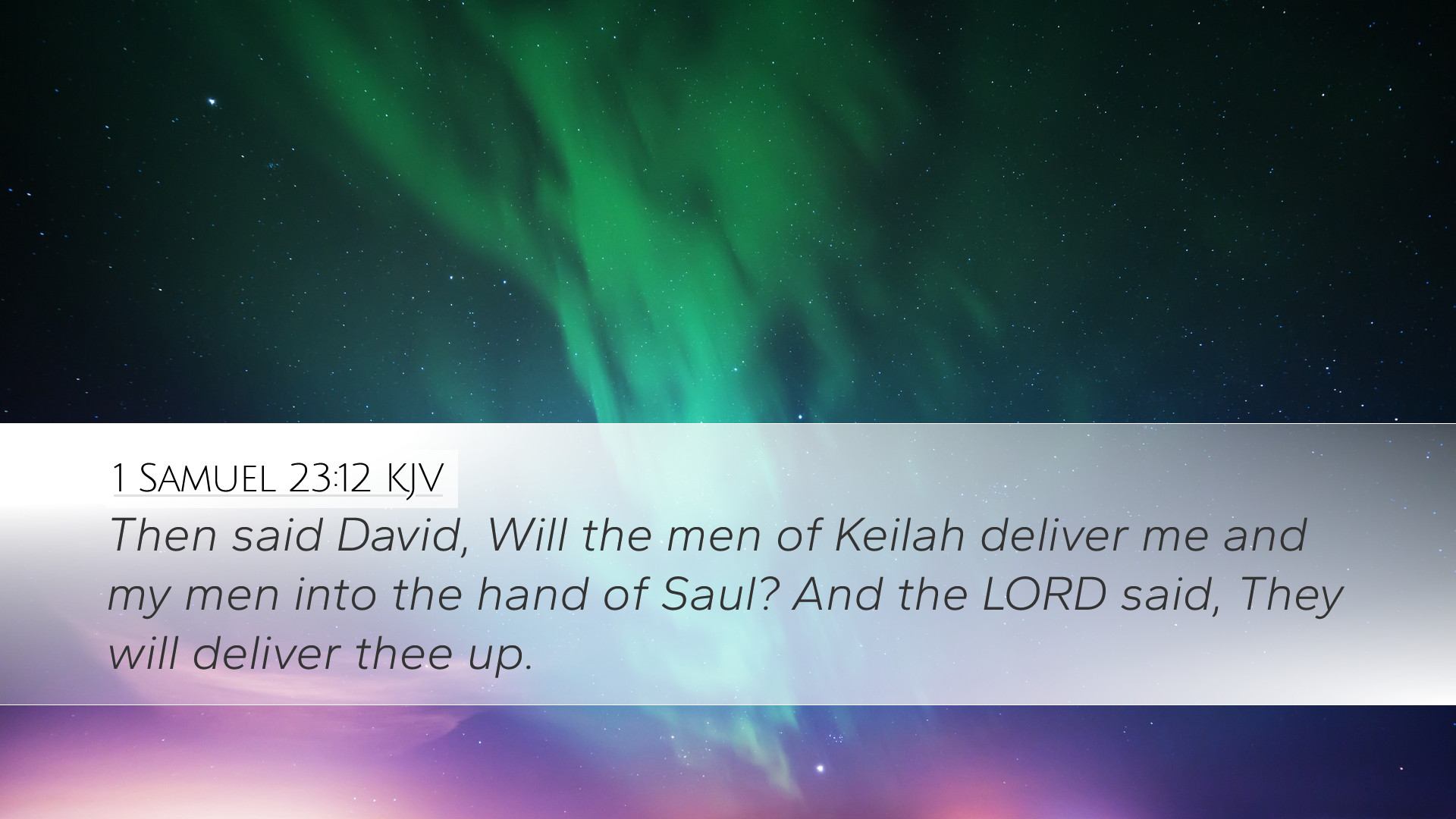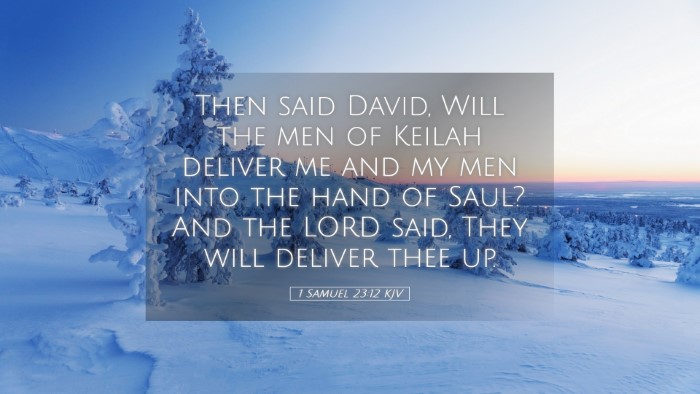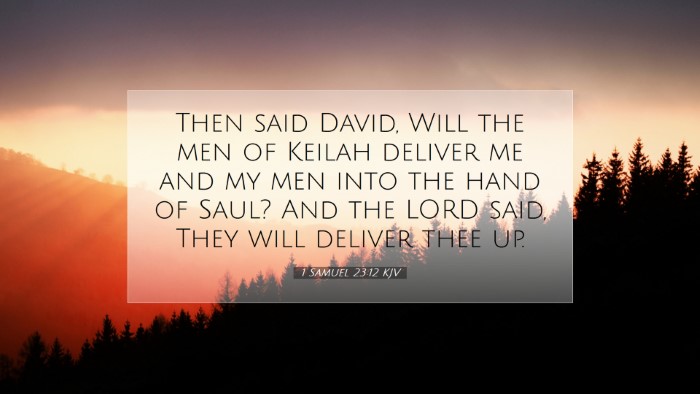Commentary on 1 Samuel 23:12
Bible Verse: 1 Samuel 23:12 - “Then said David, Will the men of Keilah deliver me up into his hand? will Saul come down, as thy servant hath heard? O Lord God of Israel, I beseech thee, tell thy servant. And the Lord said, He will come down.”
Contextual Background
The narrative of 1 Samuel 23 surfaces during a critical period in David’s life. After being anointed king, David finds himself in a precarious situation, pursued by Saul, who sees him as a rival. This verse highlights David’s reliance on divine guidance amidst peril and uncertainty. The city of Keilah becomes a focal point in this narrative as David seeks to protect its inhabitants while grappling with the threat from Saul.
The Importance of Seeking Divine Guidance
David's inquiry in this verse exemplifies his commitment to seeking God's guidance in times of trouble. His question, “Will the men of Keilah deliver me up into his hand?” emphasizes his awareness of human fallibility and the ever-changing loyalty of people when under duress.
Insights from Matthew Henry
Matthew Henry notes that David’s inquiry indicates his sincere approach to God. He suggests that a faithful servant of God must always bring their doubts and fears before Him. In his commentary, Henry emphasizes the fact that David was not only concerned for his personal safety but also for the wellbeing of the people of Keilah, showcasing his leadership quality and deep sense of responsibility.
Albert Barnes’ Perspective
Albert Barnes highlights the protective instinct of David as he weighs the risk to himself and the inhabitants of Keilah. He points out that David's inquiry gives us insight into the relationship between divine foreknowledge and human agency. He emphasizes the connection between prayer and action, reinforcing the belief that true leaders must seek God’s guidance before making decisions, particularly when their actions affect the lives of others.
Adam Clarke's Commentary
Adam Clarke provides a detailed exegesis on the significance of David's petition to God. He notes that this moment speaks to David's character traits of humility and reliance on God rather than his own strength. Clarke emphasizes that David's fear of betrayal is justified, considering the potential motives of the men of Keilah under the pressure of Saul’s pursuit. He argues that David’s questions reflect both his anxiety and his deep connection with God, showcasing that even the most godly must wrestle with fear and uncertainty.
Theological Reflections
This passage invites deeper theological reflections on the nature of God’s guidance and human free will. David’s deliberation brings to light significant themes of divine providence and human responsibility. The communication from God reassures that He is actively involved in the affairs of men, but the outcomes tied to human actions remain complex and multifaceted.
- God’s Omniscience: The reassurance that God will provide clarity in times of uncertainty is a crucial theme. David’s question to God underlines the necessity of acknowledging God’s all-knowing nature.
- Human Fidelity: David’s prescient concern about betrayal from the people of Keilah reveals the tension between faith and the potential for human treachery.
- Prayer as a Resource: This passage validates the importance of prayer and discernment. It emphasizes that seeking God’s direction is paramount for any leader or believer facing critical decisions.
Application for Leaders and Believers
This verse serves as an admonition for today’s pastors and leaders. As they navigate complex circumstances, it is vitally important to seek God’s will earnestly before making decisions that impact others. The insights drawn from this narrative can be applied in various leadership contexts:
- Seeking Divine Wisdom: Like David, leaders should commit to prayerfully seeking God’s wisdom when facing uncertainty or danger.
- Understanding Human Nature: Recognizing the potential for betrayal or change in loyalty among followers is critical for effective leadership.
- Responsibility for Others: Leaders are stewards of their people, and they must consider the implications of their actions on the community they serve.
Conclusion
1 Samuel 23:12 is a powerful narrative that underscores the importance of seeking God's guidance while facing uncertainty. Through the insights derived from Matthew Henry, Albert Barnes, and Adam Clarke, we glean essential lessons about trust in God, the complexities of human interactions, and the serious responsibilities borne by leaders. As David exemplifies, genuine faith requires a humble and earnest pursuit of divine wisdom, coupled with an awareness of the human heart’s fragility in times of crisis.


